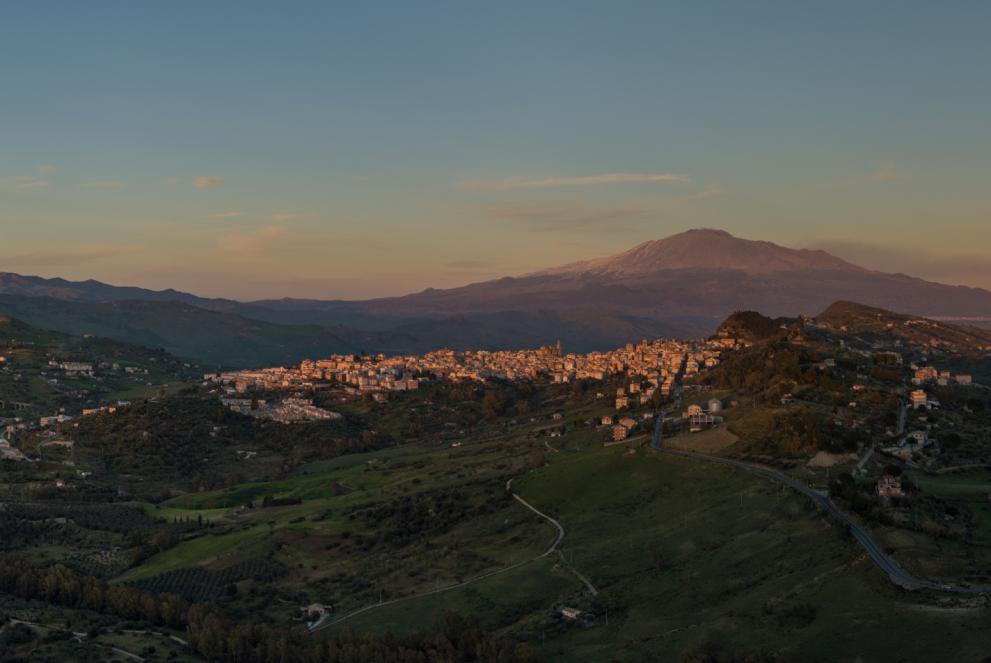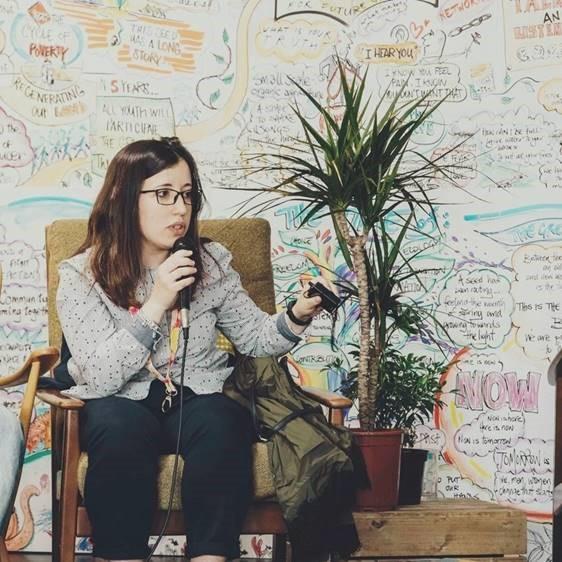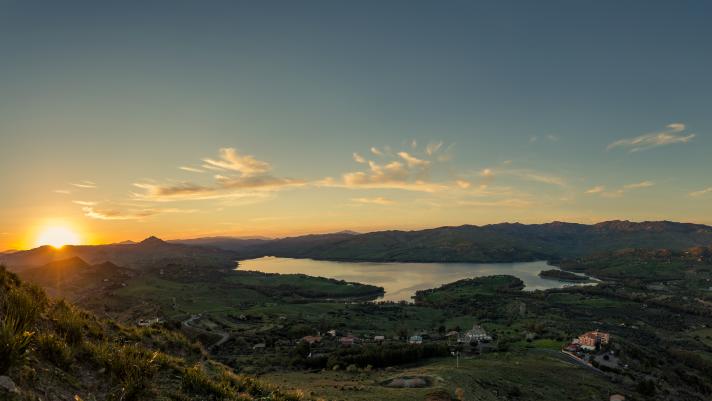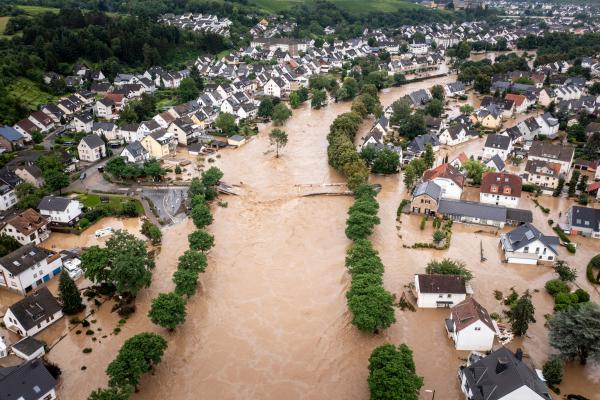
Similarly to many small rural communities in Europe, the Sicilian town Regalbuto is losing population rapidly. Over the last century, the town shrank by half, and the decline continues. The population decreased by at least 7% in the last ten years. Future prospects are not great either, the elderly outnumber the youth two to one.
Youth are leaving the town to work or study elsewhere due to growing economic challenges.
The local economy is based on agriculture. The town is part of the area that was once known as the "Wheat Belt of Italy". Farmers grow grain, raise cattle, sheep and goats, harvest citrus and olive trees.
However, they struggle to make good money from their produce. Between 2010 and 2021, over 40% of Regalbuto’s agricultural enterprises ceased to operate. The local unemployment rate is higher than in most of Sicily, and is twice the Italian average.
Wildfires brought yet another hardship. In the hot summer of 2021, fires raged for three days, destroying many farms around the town. Some lost their livelihoods only because firefighters could not reach their farms, not knowing the roads and paths leading to the buildings.
Regalbuto’s authorities have long been working to change the course of their town. When they heard about BiodiverCities, a pan-European citizen engagement pilot for towns and cities, they gladly took the opportunity to apply.
Thanks to BiodiverCities, Regalbuto could engage with its citizens to think over and establish new priorities together for the town’s development.
Over two years, almost 10% of local citizens participated in the effort to draft a new strategic development plan for the town. The exemplary project gave hope to many that change was possible and it was worth thinking together about their common future.
To learn more about what they did in Regalbuto, we talked to Medea Ferrigno, the local expert helping the town in designing and running the process. Medea is specialised in participatory planning for local development. Regalbuto is her home town. Several years prior to the project, she had been working as an activist for the development of Regalbuto’s wider area.
Drawing on citizens’ knowledge to set up new priorities
Medea recalls that when they started in 2021, the Schools for Climate movement was taking off in the big cities. However, "in towns like Regalbuto, nothing was happening", she says.
With the help of experts of the Joint Research Centre, Medea planned the process along the idea of concentric circles. They would first reach out to local stakeholders, and then to citizens more generally. They would mobilise citizens to draw on their extensive knowledge of the town and to discuss future priorities together.
Medea worked together with several volunteers, the major, the urban planning manager of the town and three researchers from the University of Catania.
In their work they could rely on the experiences that Medea and others had previously gained working on the participatory democracy activities of the Simeto River Agreement. The agreement connects ten towns, the University of Catania and the Participatory Presidium (a network of NGOs and citizens) to establish shared governance for sustainable development in the Simeto valley area.
In March 2021, they kicked off, approaching local associations, the church and enterprises, with the help of volunteers from the Participatory Presidium. They explained the project’s objectives and asked stakeholders to invite their communities to take an active role in the process.
Later, in the summer of 2021, young local volunteers went from door to door to ask citizens about their ideas for the future of Regalbuto and to invite them to the following phases.
In the second phase, Medea’s team organised community-mapping events in public spaces and in specific communities, such as the town’s school and church. For example, they asked citizens about their memories, ambitions or desires connected to different parts of the town.
Sometimes it was difficult to get answers. Medea remembers that when they entered the school and asked students what they liked about Regalbuto, the first answer was "I don't like anything". Then, when they asked what they do not like, no one was able to answer. What Medea learnt from this, is that at times a lot of work needs to be done to prepare the ground for an answer.
Despite the challenges, Medea and her team could gather vast knowledge on the town’s assets, values and weaknesses thanks to these community mapping activities.
Building on this, Medea and territorial development-researchers from the University of Catania ran eight workshops to identify and discuss priorities for the town’s development. The workshops involved citizens, stakeholder and the local administration. The aim was to set new policy priorities for Regalbuto’s future in line with Italy’s national recovery and resilience plan.
Beyond all this, Medea also organised several pilot actions. These included the regeneration of a public square with young people and migrants, crowd-mapping of micro-dumps, and focus groups with farmers to map roads to farms in the aftermath of the 2021 fires.
A culture change and a new strategic development plan
When we ask Medea about benefits of the project in the long run, she says "Long-term effects, as the term suggests, will be visible later. But citizens stop me now in the supermarket or in the streets to ask me if there are more opportunities to participate in the making of public life."
Medea says that the process gave young people the possibility to say "we do want change, we want to be part of that change, we want something new and concrete". She says that the citizen engagement process "made them feel more empowered to lead the changes the town needs".
In addition, the activities helped participants to get to know each other, build new connections and friendships. Medea says that these new relationships and people’s increased trust in each other, as well as in the authorities of the town, might be among the most important long-lasting effects.
Close cooperation with the town’s authorities, which was possible thanks to the strong support of the then mayor Francesco Bivona, ensured that the process would also influence local policymaking. The mayor and the municipality council entrusted Medea with the role of councillor for urban planning, facilitating her cooperation with the town’s office.
The final output of the process is a planning document called "Regalbuto 2032. A strategic development plan to change pace and take back the future", which sets out how the town and its citizens aim to change course and address the difficult challenges faced by their community. The town’s council discussed and officially endorsed the plan.
The Strategic Development Plan sets the direction for the next ten years, with a vision focused on the protection of biodiversity, sustainable agriculture, culture and education, as well as increased circularity. Concretely, it prioritises:
- The full transformation of the nearby Pozzillo Lake into an accessible green area and the monitoring of water quality to enhance local biodiversity;
- Establishment of a network of local farmers to discuss and share best practices to support their transition towards organic farming;
- Support for young artisan activities to revive the historic centre;
- Set up a centre for re-use and exchange, for example, of appliances to reduce waste.
The hope that Medea and the team have, is that by engaging citizens directly over the medium to long term, they can re-invigorate their town, help alleviate demographic challenges, and place support where it is really needed for better long-term outcomes.
EU help making this citizen engagement possible
The pan-European BiodiverCities pilot programme gave the opportunity to Regalbuto to run this process and engage so intensively with citizens. The pilot paid for the work of Medea, who thanks to this could dedicate her time to designing and organising activities.
Moreover, the JRC offered workshops to enhance the knowledge of Medea in a number of areas, and JRC scientists had regular meetings with Medea to help in designing and rolling out the citizen engagement process.
BiodiverCities is a pilot programme of the European Parliament, which aims to enhance civil society participation in local and urban decision-making for building a joint vision of a greener city of tomorrow. The project also contributes to the mapping of urban biodiversity and ecosystem services in European towns and cities.
Ten European cities have been selected and involved in BiodiverCities: Palermo, Regalbuto, Varese (Italy), Lisbon and Valongo (Portugal), Palma de Mallorca (Spain), Leiden (Netherlands), Maribor (Slovenia), Novi Sad (Serbia), and Vilnius (Lithuania).
BiodiverCities is run by the European Commission’s Joint Research Centre together with the Directorate-General for the Environment. It is one of the key projects of the JRC’s Competence Centre on Participatory and Deliberative Democracy.
The JRC’s Competence Centre on Participatory and Deliberative Democracy aims to respond to the increasing demand from the European Commission, EU institutions and countries to support participatory and deliberative projects and policies at the EU level.
The Competence Centre annual Citizen Engagement & Deliberative Democracy Festival will start tomorrow. It is an open event, which brings together people of diverse backgrounds who are interested in citizen engagement and deliberative democracy in Europe and beyond. Join us online or watch the live stream on 20-21 October, if you would like to learn more about the JRC’s citizen engagement work.
Details
- Publication date
- 19 October 2022
- Author
- Joint Research Centre






